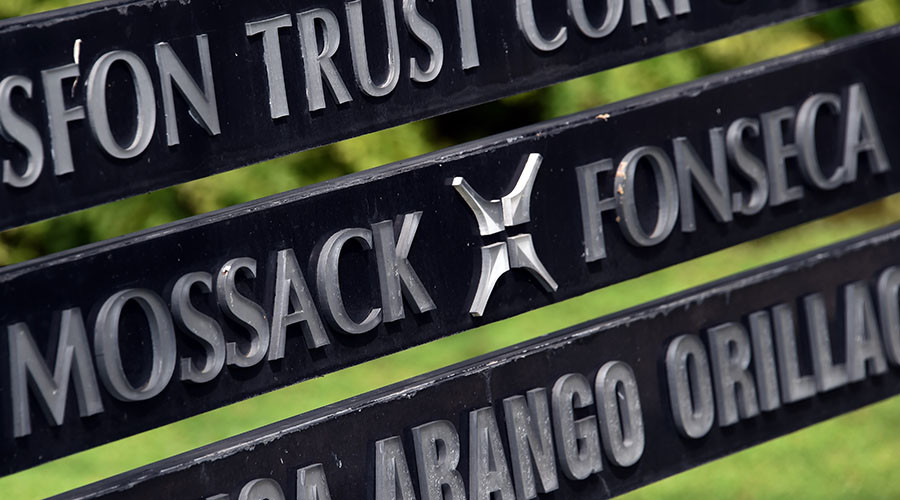On Sunday 3rd of April, a massive leak of confidential documents from notorious Panamanian law firm Mossack Fonseca were made public. The 11.5 million documents were sent from an anonymous source to German newspaper Süddeutsche Zeitung, then analysed and shared by the International Consortium of Investigative Journalists (ICIJ). The leaked data covers nearly 40 years, from 1977 through to the end of 2015. It is the most complete report on offshore business to ever be published.
These documents reveal numerous transactions by offshore companies used to hide assets. It proves how Fonseca was complicit in the laundering of money and evasion of tax by helping its clients to set up offshore shell companies in tax haven countries.
The files expose offshore companies controlled by many politicians and world leaders, including current and former leaders of the Gulf countries. Among them include King Salman of Saudi Arabia, Crown Prince and Saudi Arabia’s Minister of Interior Mohammad bin Naif bin Adbdulaziz Al-Saud, President of the United Arab Emirates Khalifa bin Zayed Al Nahyan, as well as the former Prime Minister of Qatar Hamad bin Jassim bin Jaber Al Thani and the former Emir of Qatar Hamad bin Khalifa Al Thani.
The documents suggest that King Salman used money from a company set up in the British Virgin Islands to take out mortgages on luxury properties in London and to buy an extravagant yacht accommodating up to 30 guests.
Furthermore, the Swiss Bank UBS has used two offshore companies to open bank accounts for the Saudi Arabia’s Crown Prince and Minister of Interior who was later granted the power of attorney for these companies.
Similarly, they show that Al Nahyan, President of the United Arab Emirates and Emir of Abu Dhabi also used British Virgin Islands companies to buy luxury real estate. He was the owner of more than 30 companies established in the British Virgin Islands through which he held commercial and residential properties worth at least $1.7 billion.
Former Prime Minister of Qatar also acquired a company in the British Virgin Islands and three companies on the Bahamas. He took over the management of these companies before dissolving them.
While some country leaders have reacted to the revelations in the ‘Panama Papers’, providing explanations against accusations of illegal conduct, Gulf leaders have remained relatively silent. The UK law firm representing the President of the UAE Al Nahyan said it was ‘unable to help’. They did not respond to any requests for a comment. However, even if offshore companies may be legal in themselves, this practice is well known to finance illegal and/or criminal activities. This may serve to highlight the underlying corruption in GCC states.
In Qatar for instance, although corruption is considered relatively low, the use of influential people and gift giving known as ‘wasta’, plays an important role. The anti-corruption laws criminalize active and passive bribery, but the implementation of these laws is doubtful.
Similarly, this use of middlemen and abuse of power are particularly frequent in Saudi Arabia. There is no legislation protecting conflict of interest and political supporters are often rewarded for their support in being appointed to public office jobs or in receiving subsidies. Even if some laws exist about bribery, the government does not effectively enforce all of them. Corruption is also illustrated by the strong influence of the royal family in the extractive industries. Saudi Arabia is the world’s greatest oil producer with more than 3 million barrels produced per day. However, most of the country’s revenue from oil sales are falling into the hands of the royal family. Saudi Arabia’s King’s fortune was estimated at US$17 billion. Consequently, it is easy to understand why the elite of this country hide their assets in offshore tax havens. What is not so evident is that a large number of Saudi citizens live in poverty, living in housing that may be considered inadequate by international standards on economic and social rights. This is an issue that must come to the fore in light of the revealing practices of corruption of Saudi Royals.
In Kuwait, the royal family also has major control over the economy’s primary industries. Even if legislation exists about anti-corruption, they are often not effectively implemented and public officials are widely implicated in corrupt activities. Specifically, Kuwait’s land administration suffers from corruption: property rights are not effectively protected. This has been a problem for Kuwait’s stateless ‘Bidoon’ who suffer widespread discrimination including in the area of property. Furthermore, Kuwait has one of the largest oil reserves in the world with its economy 80% based on oil revenues and this sector is entirely state-owned.
The UAE is considered as the least corrupt country in the Arab world. However, information on corruption is scarce due to severe censorship in the country. The overall budget lacks transparency and oil revenues are not included in the budget calculations.
In Bahrain, the controversy over the $2.5 billion Bahrain Bay project is the illustration of a country where public land is privatized by the royal family. Further, an investigation has shown that an investment vehicle that is owned by the King and his family used offshore plots to obtain stakes in private joint venture projects. Another controversial project is the construction of a $3.2 bn residential and commercial development on the Northeastern tip of Bahrain. There are reports that the royal family has privatised this land in order to serve its own economic interests.
Even if Gulf countries are not ranked as the ‘most corrupt’ according to Transparency International’s Corruption Index, royal families and the elite part of society own and control many of the economy’s important sectors and often carry out activities that may be unlawful, with impunity. Also, what cannot be disputed is that the measures taken by these countries to fight corruption are still modest compared to other regions of the world.
Sophia Nizard is an Advocacy Intern at ADHRB.
Photo courtesy of RT.





